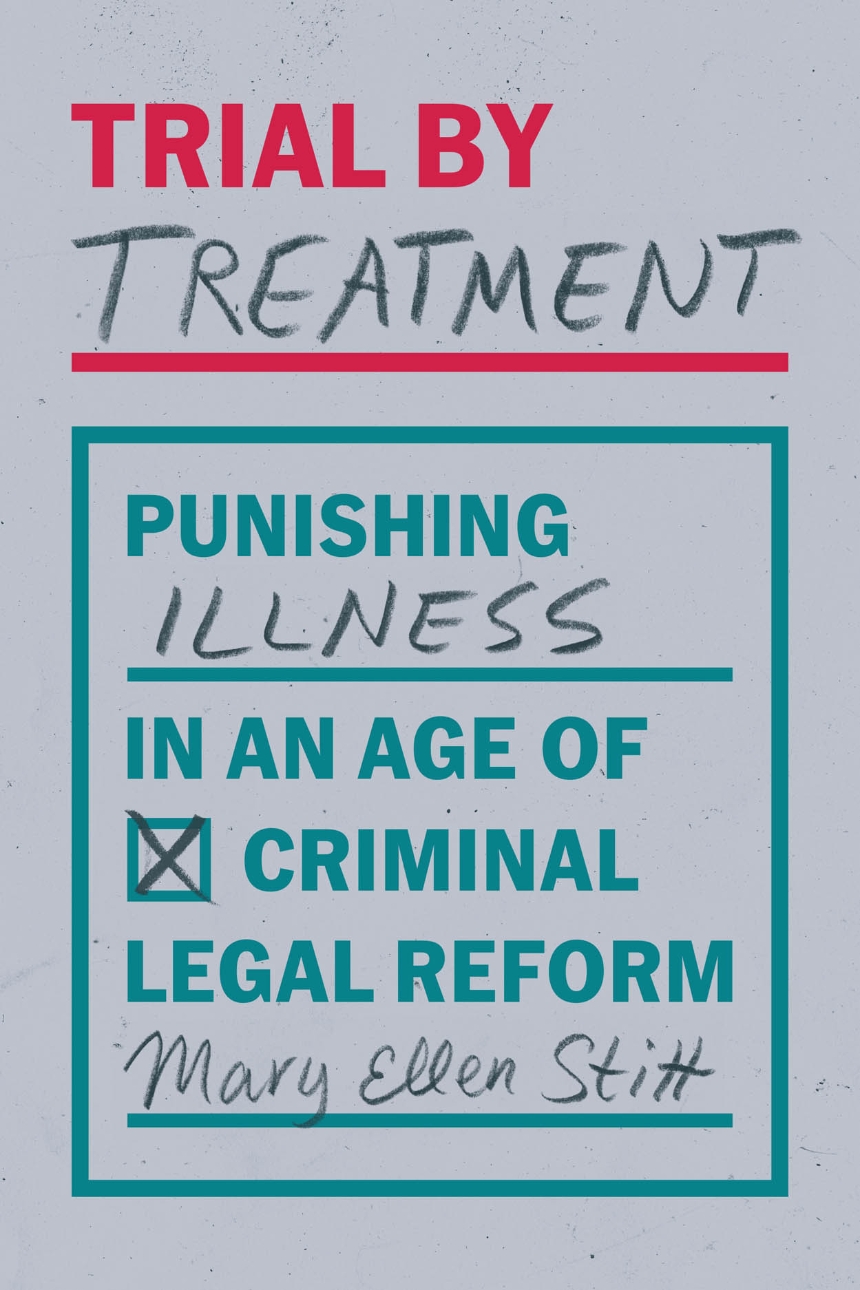Trial by Treatment
Punishing Illness in an Age of Criminal Legal Reform
Trial by Treatment
Punishing Illness in an Age of Criminal Legal Reform
A troubling account of the unexpected impacts of treatment-based alternatives to criminal punishment.
Every year, courts send hundreds of thousands of people to treatment-based programs as alternatives to traditional punishment. These alternatives—known as ‘diversion programs’—are widely celebrated as reforms that reduce the punishment of the mentally ill. But in Trial by Treatment, Mary Ellen Stitt shows that they have, in fact, expanded the reach of the criminal legal system and its power over the lives of the most vulnerable.
The inner workings of diversion programs are obscure, partially by design, and data on outcomes is hard to come by. Stitt draws on two years of fieldwork in criminal courtrooms and court-mandated treatment sessions, as well as an original national dataset, in-depth interviews, and experimental survey data, to document the hidden impacts of diversion. She shows that placing mental healthcare under the control of the courts has helped to legitimize the criminalization of illness, warped treatment environments, and amplified inequalities in punishment. In vivid and humanizing detail, Trial by Treatment shows how reforms that keep power and discretion in the same hands can entrench the very problems they promised to solve.
256 pages | 3 halftones, 9 tables | 6 x 9 | © 2025
Law and Legal Studies: Law and Society
Sociology: Criminology, Delinquency, Social Control, Race, Ethnic, and Minority Relations
Reviews
Table of Contents
Part I: Legitimation
Chapter One: Rescuing Legitimacy: Treatment-Based Reforms in the Criminal Legal System
Chapter Two: Extending Control: Diversion and the Interventionist Courtroom
Part II: Assimilation
Chapter Three: Managing Risk: The Design of Mandated Care
Chapter Four: Coercing Care: Therapist-Enforcers and Client-Defendants in the Therapeutic Space
Part III: Obfuscation
Chapter Five: Sorting People: Adjudication by Social Structure
Chapter Six: Punishing Treatment: The Costs of Diversion
Conclusion
Acknowledgments
Methodological Appendix A
Methodological Appendix B
Methodological Appendix C
Notes
Index
